During the process of evacuating air conditioners, vacuums are used to remove all of the air and moisture from the refrigerant system. This is done in preparation for testing, repairs, and recharging of the system. But how long should the AC system hold vacuum? To find reliable answers, we asked HVAC technicians, and here is their reply.
AC system can hold a vacuum of 29.92 Hg for up to 1 minute. Isolate the vacuum rig along with the essential tools, and then give the system between 15 and 30 minutes to stand still. The micron-level has been successfully evacuated when it does not rise to a level greater than 500 microns.
If the pressure goes above 500, the core tools should be opened once more and the evacuation should be allowed to proceed. To learn more about AC systems and vacuums, hang on and keep reading.
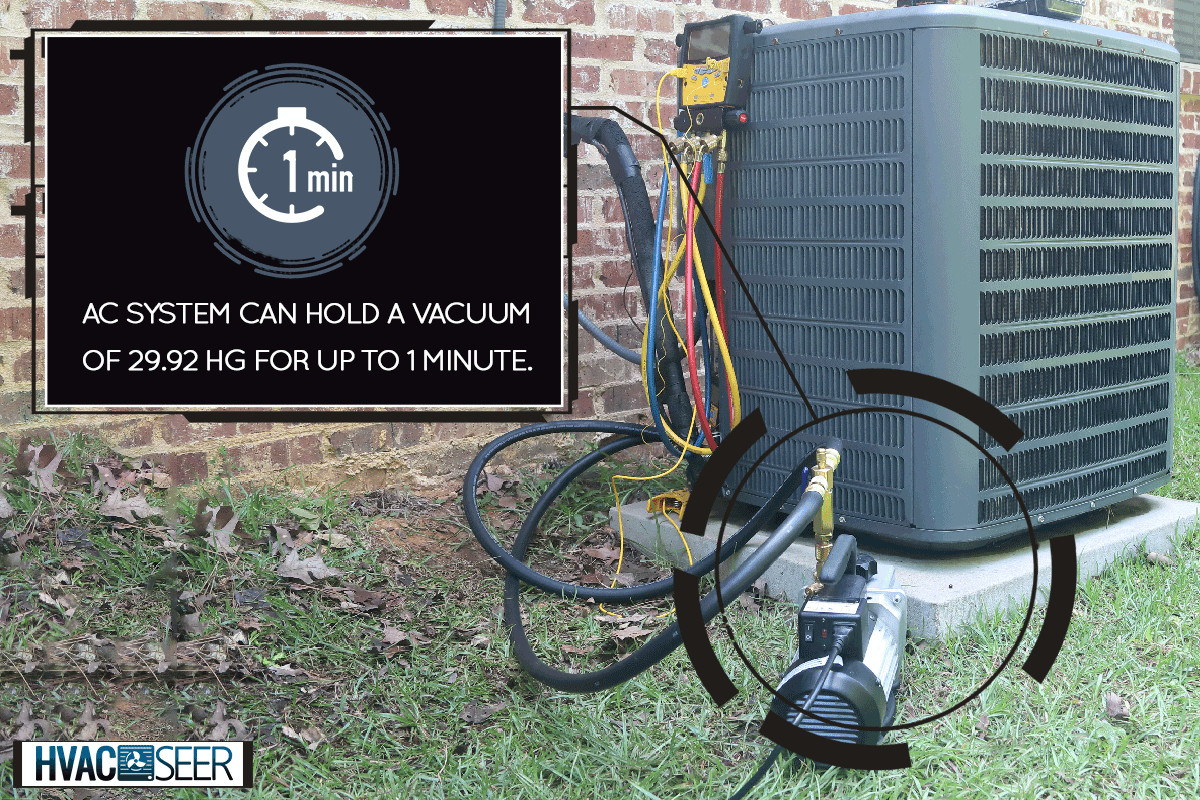
AC System Vacuum
A vacuum pump draws air and moisture out of the system before the system is damaged, preventing the need for repair. When the vacuum is performed to a greater depth and with greater thoroughness, a greater quantity of moisture is extracted, and the risk of system difficulties brought on by undesired water or other pollutants is reduced.
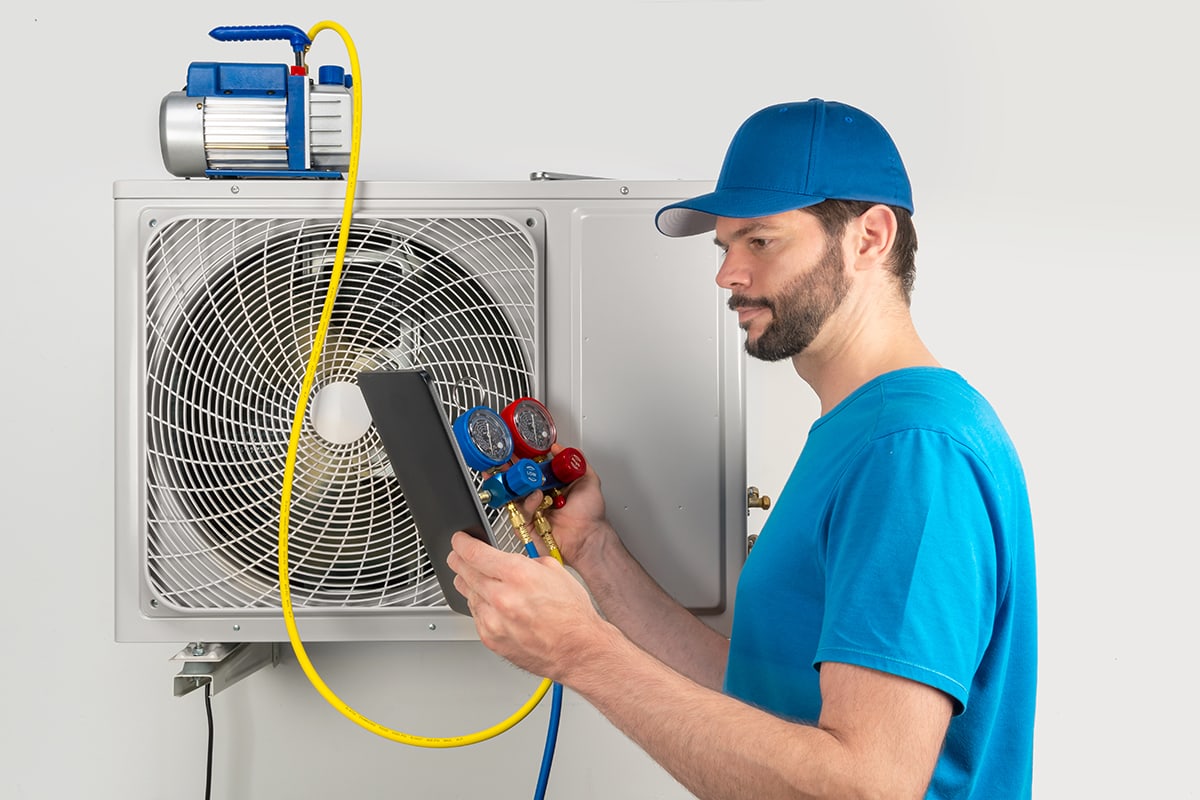
Fans bring outside air into the room. The air in the room is full of dust. The passageway for the air that needs to circulate is blocked by dust. There's another interpretation for "vacuumed with air conditioners." If the refrigerant needs to be refilled, you must first use a vacuum pump to remove any residual fluids from the system.
You continue this process until the AC's plumbing is devoid of any liquid. The next step is to inject a certain quantity of fresh refrigerant gas into the space that has been created. The system receives a "recharge" as a result of this.
Cleaning The Heat Exchanger
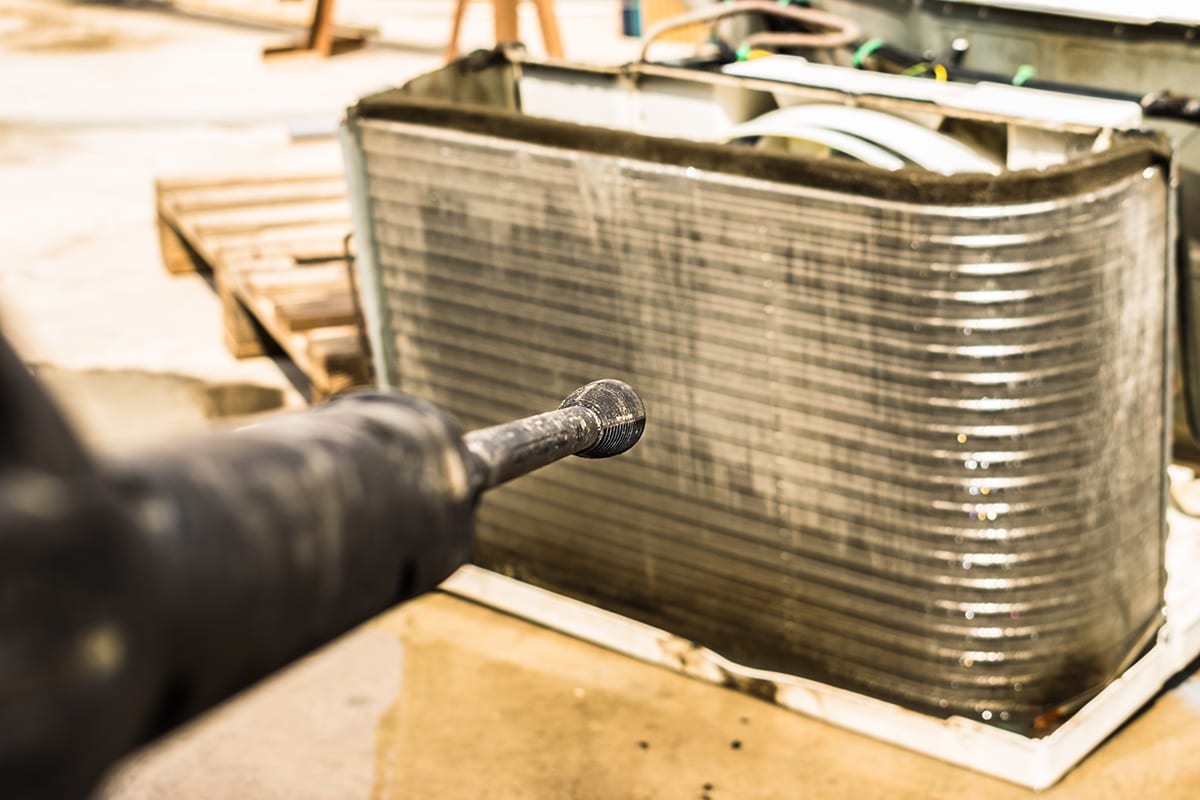
In order to avoid insulating dust from accumulating on the coils of an AC heat exchanger, it is necessary to clean the heat exchanger on a periodic basis. Because dust acts as an insulator, heat transfer between air and refrigerant, as well as vice versa, is less effective when the dust is present.
It is desirable to vacuum the ductwork to reduce the inefficiency in airflow through the ducts, which delays the air and volume of air reaching each outlet. This can be accomplished by vacuuming the ductwork.
Because there is less air, there will be less air conditioning delivered to each room relative to the amount of energy used by the fan. Cleaning the ductwork and the coils should minimize the number of microorganisms that live in the ducting, resulting in a healthier system.
How Long Should AC System Hold Vacuum?
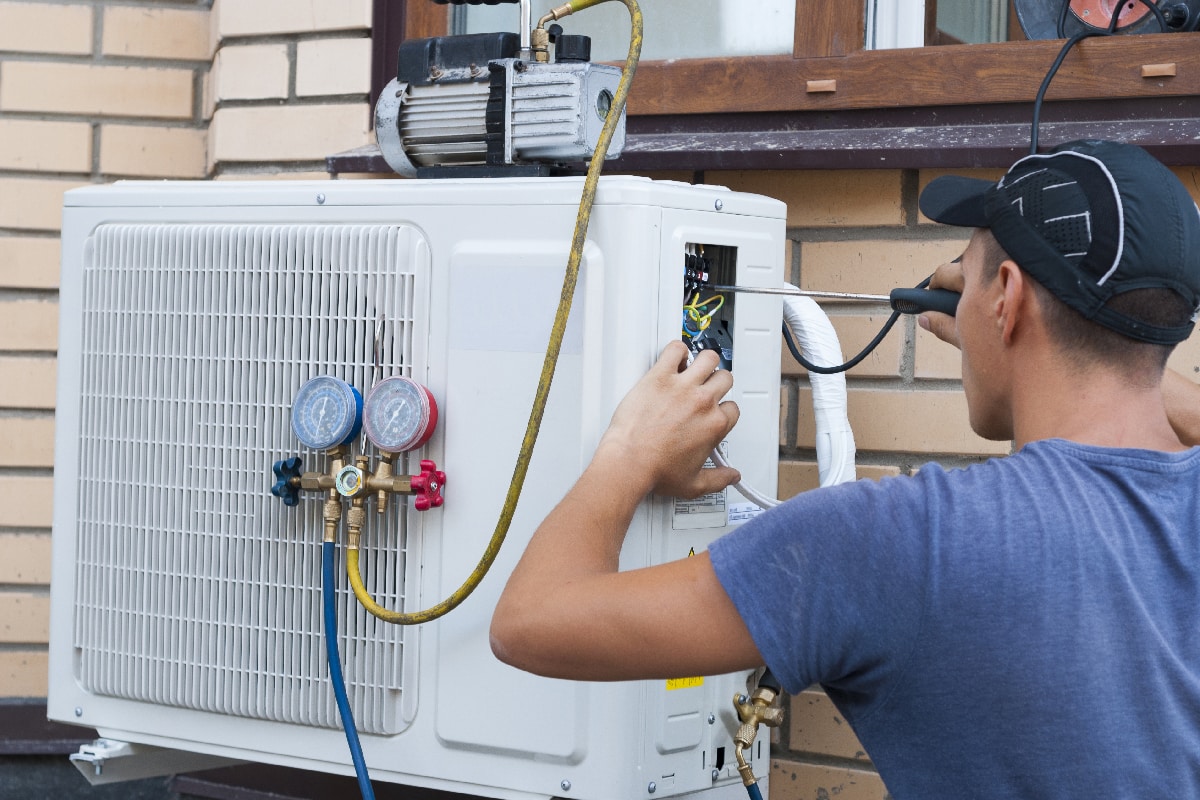
To eliminate any moisture that may have entered the system along with the non-condensable gases while it was open, a vacuum of approximately 500 microns, which is equivalent to 29.92 hg gauge pressure, is required.
At a minimum of one minute, the car air conditioning system must maintain a vacuum of 29.92 inches of mercury. Also, it is dependent upon the actual size of the system. If there is a small leak in something like a domestic refrigerator or window unit, it will show pretty quickly.
However, if there is the same leak on a 20-ton commercial unit, you may not see it on the gauge for up to an hour, this is assuming that you are utilizing a vacuum to confirm that there are no leaks.
What is a Perfect Vacuum in an AC System?
At 5,000 microns, 99.34 percent of the degassing process has been completed, but the removal of moisture is just getting started.
If you are unable to produce a vacuum lower than 5000, this is a strong indication that there is a leak somewhere in the system. This might be a leak in your vacuum hoses, contaminated vacuum pump oil, or something else.
How Long Should a Vacuum Hold Under 500 Microns?
Isolate the vacuum rig using the essential tools, and then give the system between 15 and 30 minutes to stand still. The micron level has been successfully evacuated when it does not rise to a level greater than 500 microns.
If the pressure goes above 500, the core tools should be opened once more and the evacuation should be allowed to proceed.
How Long Should You Pull a Vacuum On a Normal Compressor Change Out?
To remove all of the air from your air conditioning system, you should give your vacuum at least 15 minutes and up to 30 to run at its maximum speed while it is functioning.
A decent pump is not difficult to access. Isolating the vacuum rig and the core equipment will allow you to give the system time to rest for 15 to 30 minutes.
Can I Leave a Vacuum Pump Running Overnight?
Yes, as long as there is not a risk to the user's safety that is linked with the constant operation. Doing so may be required to reduce the pressure at the base. The concept of "vacuum" refers to pressure on an extremely minute scale.
Every mechanical vacuum system has a maximum fractional pressure that must be avoided. This is something that must be done. Since vacuum systems all allow at least a little bit of pressure to enter the system through leaks, the pump needs to be in operation for as long as the pressure level in the system is too high.
A pump can remain operational for several months at a time provided that the fluid level in the pump is kept at the appropriate level and that there is sufficient cooling. The pump manufacturer determines the rebuild intervals based on the individual model of each pump.
How Many PSI Is a Good Vacuum?
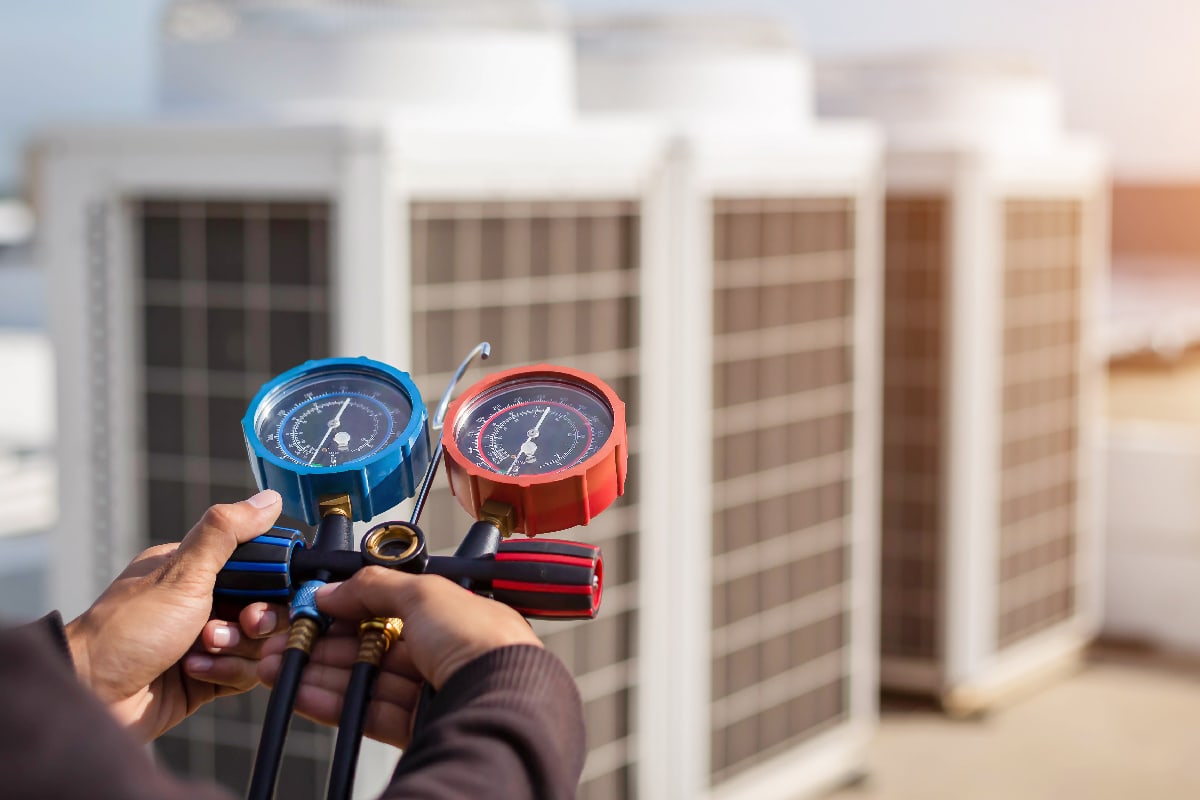
The value of 14.7 psi is comparable to 0 inches of mercury when measured at the standard atmospheric pressure. At the opposite reference point, which would be a perfect vacuum (if it were possible to achieve) the value would be equal to the other end of its range, which is 29.92 inches of mercury.
What Happens If You Don't Vacuum The AC System?
You won't get the best performance out of the air conditioning system since there will be a small amount of air in it if you don't vacuum out the system before you refill it with new air. If the pressure is lowered, the water that is currently in the system will boil away.
If you do not remove the moisture from the system, the acids that are produced as a result of the high-temperature reaction between the refrigerant and the moisture will cause the condenser to be destroyed.
Other damaged parts can be the evaporator, the compressor, and any control valves in the system, in addition to any aluminum lines. To put it another way, every component of the overall system.
Although the normal recommendation is 500 microns, some manufacturers advocate 80 or 100 microns for longer life, improved cooling capacity, decreased power consumption, and increased efficiency based on their manufacturing parts.
Effects of Air Within The Refrigerant Or The Refrigerant Coil
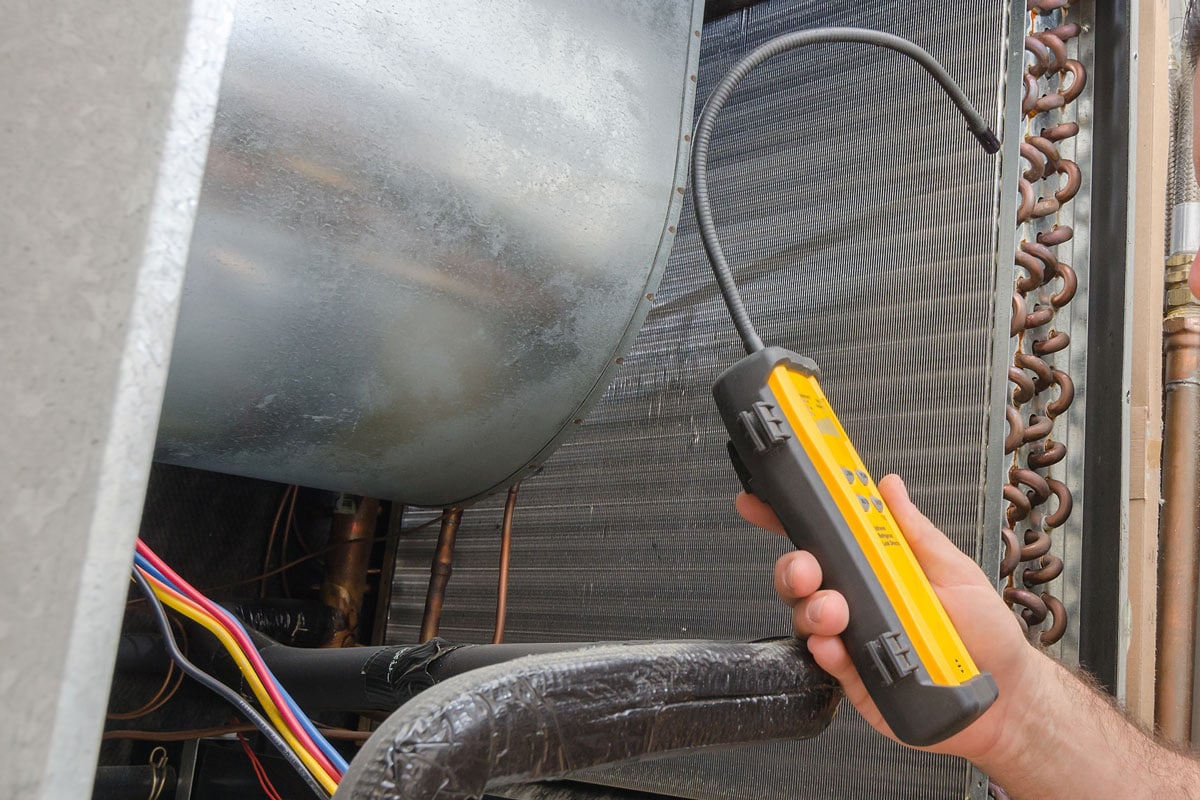
These are the effects of air present within the refrigerant coil:
A Lower Total Refrigerant Charge
Because air takes up some space, a lower total refrigerant charge will be achieved in the refrigerant pipe and the refrigerant system.
For instance, in an area that is 100 percent occupied, 30 percent of that area is occupied by air, and the remaining 70 percent is refrigerant; this means that the final charge on the refrigerant will only be 70 percent instead of 100 percent.
Reduced Capacity of The Condenser
Air is a non-condensable gas, which means that it takes up more space in the system than refrigerant does. This causes the capacity of the condenser to drop, which in turn causes the cooling capacity to decrease.
Increased Condenser Temperature
Insignificant gases occupy the space, water vapor does not condense as easily as it does with refrigerants. This causes the pressure and temperature of the system to rise.
When the condenser is overheated, the pressure will grow, and it will enter the evaporator. This will cause the compressor to become overheated, which will result in high power consumption and the failure of the compressor winding and system.
Less Cooling and Higher Power Consumption
When the compressor is overheated, the power load will increase on the compressor, which will result in both higher power consumption and less cooling capacity because of air occupancy.
Formation of Acid
When moisture is combined with lubricant, a chemical reaction takes place that turns the moisture into acid. This acid causes the failure of the motor winding and the formation of rust on the internal parts of the motor, such as the crankshaft, piston, housing, and piston rings.
Damages Expansion Device
When the refrigerant and the moisture enter the expansion valve, the moisture will block the entrance or exit of the expansion valve, which will result in the formation of ice in the expansion valve and the failure of the whole system.
Conclusion
If you were questioning whether or not it is truly necessary to vacuum your air conditioning system, the answer is yes. By vacuuming, you can eliminate any moisture and air from the system, which ensures that it will function at its optimum level.
If you enjoyed reading this post, here are similar engaging posts you would enjoy:
